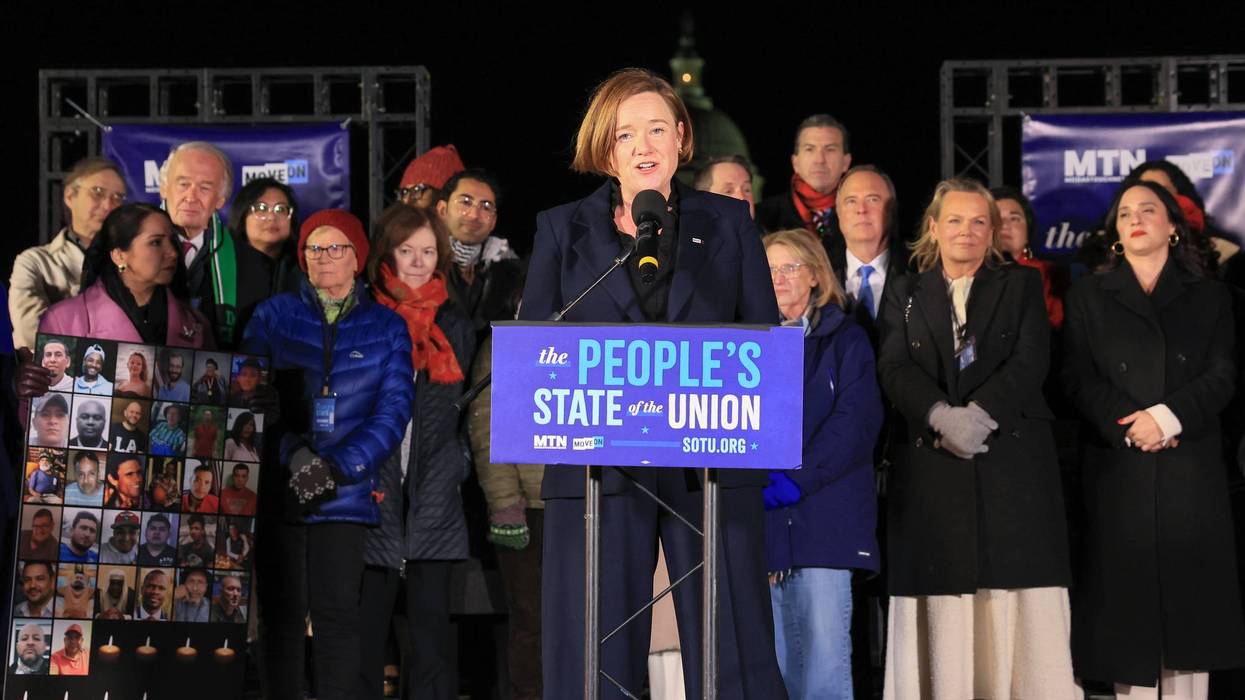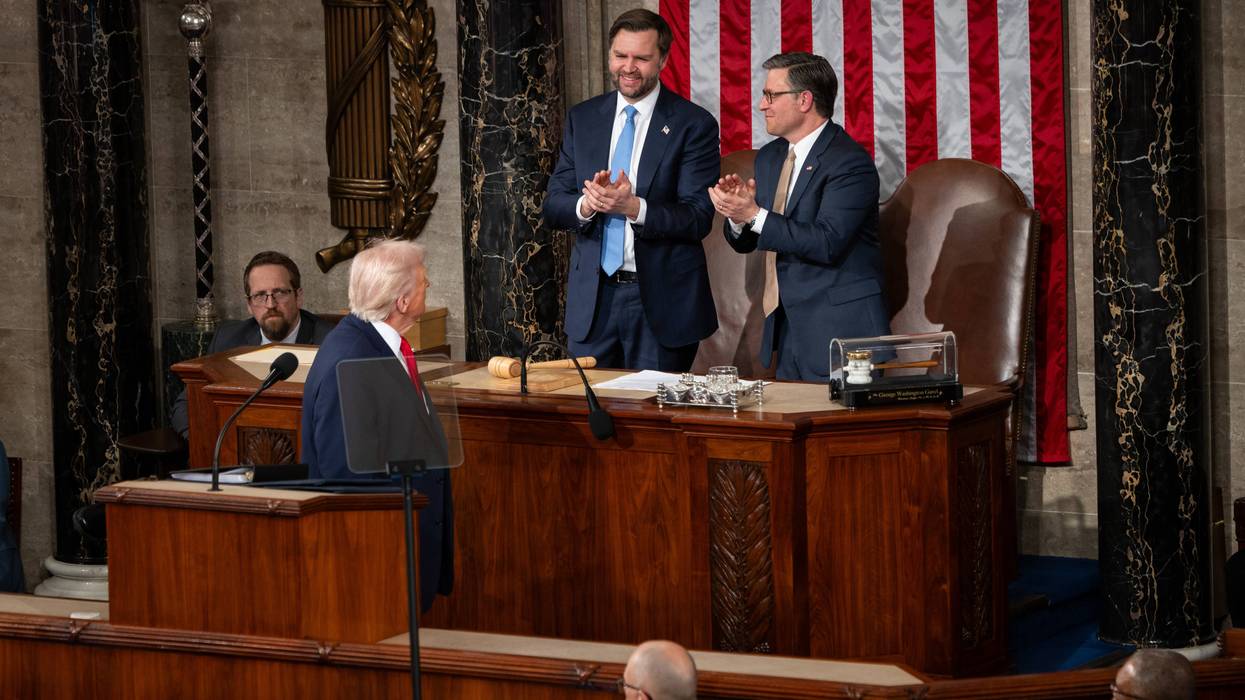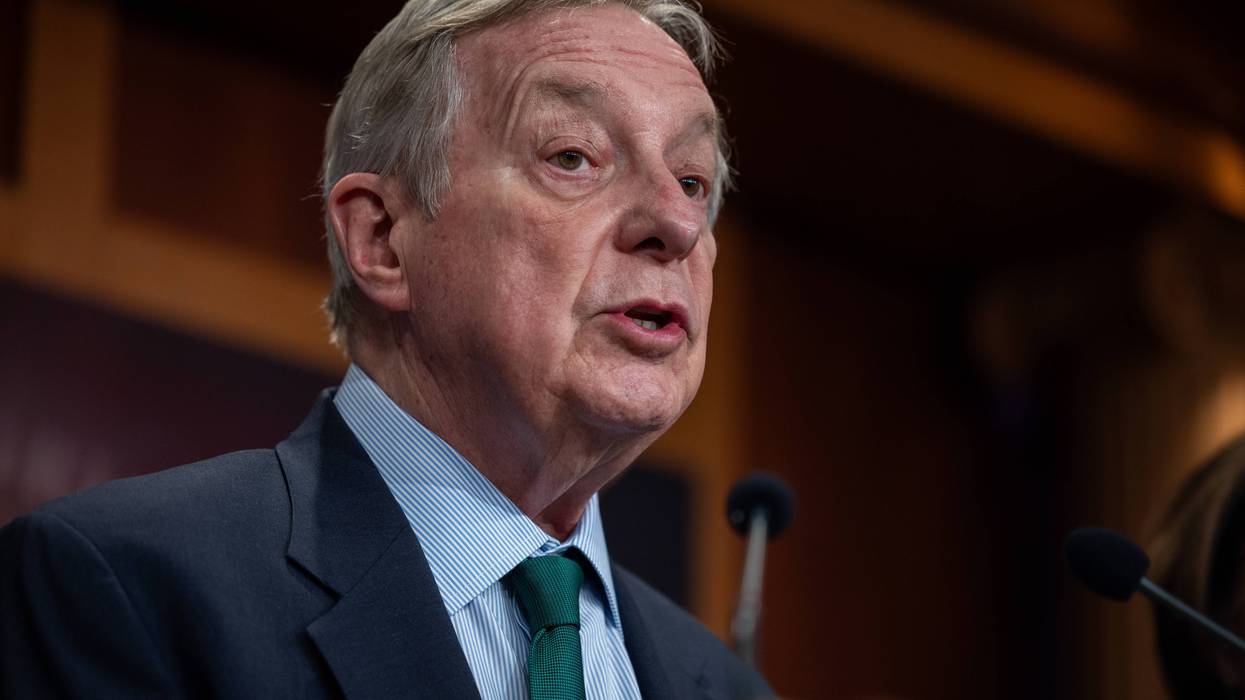June, 02 2020, 12:00am EDT

As Attacks on Protesters and Journalists Increase, Coverage of Communities and Police Needs to Change
WASHINGTON
The weekend saw escalating police violence against protesters and reporters at nationwide demonstrations against the police killing of George Floyd and systemic racial injustices. There has been an unprecedented number of attacks against journalists at many of these protests as law-enforcement officers have specifically targeted those engaged in First-Amendment protected newsgathering and reporting. This mirrors the ways police are targeting those engaged in First-Amendment protected protest.
President Trump has egged on the police crackdown in a series of recent tweets, including one that labels news outlets covering the protests as the "Enemy of the People." Reporters and researchers at the U.S. Press Freedom Tracker are investigating more than 100 separate incidents in which officers attacked reporters, permanently blinding a photojournalist in one eye and causing other grave injuries.
Free Press News Voices Organizing Manager Alicia Bell made the following statement:
"Free Press is in full solidarity with the Movement for Black Lives and committed to protecting the rights and safety of protesters and the reporters who cover these demonstrations. It bears repeating: The First Amendment prevents law enforcement from silencing the voices of protesters and from beating back the journalists who seek to share their concerns with the world.
"It's not enough to cover the protests via the official podiums of local police departments and politicians. Reporters need to turn their cameras and microphones toward the local organizers who have long engaged in the fight for Black dignity alongside those who are now taking to the streets with legitimate grievances against a system that devalues the lives of our people.
"Rather than allowing law enforcement to control the narrative and vilify Black people, as has been the case too often in the past, journalists must be free to mingle among protesters to document and air their perspectives.
"This moment underscores the importance of deep relationship building between newsrooms and communities. Newsrooms must replace police ride-alongs with community-listening sessions and other intentional tactics for shifting power.
"Free Press supports the ongoing calls for urgent transformation of a system that puts Black people at risk. Coverage of protests like the ones unfolding across the country is essential to informing the public, exposing official violence and responding to our communities' needs. Free Press is working with allies to reimagine crime-justice reporting. We're eager to extend our work with newsrooms committed to deeper engagement -- and ultimately, to shifting power away from the anti-Black status quo and toward a shared vision of the future."
Free Press was created to give people a voice in the crucial decisions that shape our media. We believe that positive social change, racial justice and meaningful engagement in public life require equitable access to technology, diverse and independent ownership of media platforms, and journalism that holds leaders accountable and tells people what's actually happening in their communities.
(202) 265-1490LATEST NEWS
Watched by Millions, 'People's State of the Union' Counters Unhinged Trump
"We live in a country where we have one reality for everyday people and another for the rich and the well-connected and the well-protected," said Rep. Summer Lee.
Feb 25, 2026
As President Donald Trump prepared to deliver his State of the Union address on Tuesday to applause from sycophantic Republicans, dozens of Democratic lawmakers, progressive advocates, and people impacted by White House policies gathered on the National Mall to present an alternative assessment of the country's trajectory.
"We live in a country where we have one reality for everyday people and another for the rich and the well-connected and the well-protected," said Rep. Summer Lee (D-Pa.), preempting Trump's claim of a "golden age of America" despite rising costs, deepening inequality, and staggering corruption.
While many Democratic lawmakers opted to attend Trump's speech, saying they did not want the president to deliver his remarks to a House of Representatives full of Republicans, Sen. Chris Murphy (D-Conn.) told the crowd gathered blocks from the US Capitol that "these are not normal times, and Democrats have to stop behaving normally."
Watch the full counter-rally, which organizers said millions watched online:
Among those who joined Democratic lawmakers at the People's State of the Union were Epstein survivors and people harmed by the Trump administration's lawless assault on immigrants, assault on the social safety net, and other policies.
Rep. Greg Casar, chair of the Congressional Progressive Caucus, said during his remarks at Tuesday's rally that "I’m not in the Capitol building tonight because I have a pretty good idea of what's going to happen."
"For an hour or two or three or four, a man who's made $4 billion off of being president is going to lecture you, the American people, about how good you have it," said Casar. "A man who is building himself a golden ballroom is going to tell you that if you're struggling to get by, that's your fault, because he's killing it."
"Everyone but Donald Trump's rich friends knows that it's a disaster," Casar added.
Keep ReadingShow Less
'Disgusting': Republicans Applaud as Trump Brags About Taking Food Aid From Millions
"His Big Ugly Bill ripped food away from hungry moms, kids, and seniors to fund tax cuts for the wealthiest Americans," said one House Democrat.
Feb 25, 2026
US President Donald Trump received a standing ovation from Republican lawmakers and administration officials Tuesday night when he bragged during his State of the Union address about taking nutrition assistance from millions, which he euphemistically characterized as lifting people off food stamps.
"In one year, we have lifted 2.4 million Americans—a record—off of food stamps," Trump said during his nearly two-hour speech.
The Republican reconciliation package that Trump signed into law last summer included $187 billion in cuts to the Supplemental Nutrition Assistance Program (SNAP) over a 10-year period, the largest cuts to the program in US history.
Trump: "In one year, we have lifted 2.4 million Americans -- a record -- off of food stamps" (In other words, Republicans cut food stamps) pic.twitter.com/19EoNEUmPF
— Aaron Rupar (@atrupar) February 25, 2026
The Republican law includes reductions in federal nutrition funding for states—which administer SNAP—as well as expanded work requirements, which the nonpartisan Congressional Budget Office estimated would strip nutrition benefits from "roughly 2.4 million people in an average month" over the next decade.
As the Center on Budget and Policy Priorities noted in a recent analysis, changes enacted by the Trump-GOP law mean that "for the first time in the 50-year history of the modern SNAP program, the federal government will no longer ensure that the lowest-income people, including children, older adults, veterans, and people with disabilities, in every state have access to the food assistance they need because states that refuse to pay the cost share could see the program end."
Shortly after Trump signed the Republican megabill into law, his administration canceled an annual US Department of Agriculture survey aimed at measuring food insecurity, undercutting efforts to track the impact of the unprecedented SNAP cuts. The USDA's final reports estimated that nearly 48 million people in the US faced food insecurity in 2024—including nearly one in five households with children.
"Trump says he 'lifted' millions off food stamps," Rep. Brittany Pettersen (D-Colo.) wrote in response to the president's State of the Union remarks. "But what he really means is his Big Ugly Bill ripped food away from hungry moms, kids, and seniors to fund tax cuts for the wealthiest Americans. The lies are blatant and disgusting."
Rep. Sarah McBride (D-Del.) denounced her Republican colleagues for their celebratory response to Trump's boast.
"They're applauding ripping food out of people’s mouths to fund their tax cuts for billionaires," McBride wrote on social media.
USDA data released ahead of Trump's speech shows that around 696,000 fewer people received SNAP benefits in November 2025 compared to the previous month.
Katie Bergh, a senior policy analyst on the food assistance team at the Center on Budget and Policy Priorities, noted that "people haven’t been dropping off SNAP because they no longer need help."
"Economic conditions haven’t improved and groceries haven’t gotten more affordable," Bergh added. "They're losing basic food assistance because of policy choices. Allowing this trend to continue is also a policy choice."
Keep ReadingShow Less
Congress Urged to Require Warrants in Reauthorization of Key Spy Power
"FISA 702 has been abused in shocking ways," said one campaigner. "If Congress genuinely cares about surveillance abuse, weaponization, and 'lawfare,' it needs to rein in this warrantless surveillance power."
Feb 24, 2026
Privacy advocates are backing a bipartisan bill introduced in the US Senate this week that's intended to protect Americans from warrantless government surveillance.
Sens. Dick Durbin (D-Ill.) and Mike Lee (R-Utah) unveiled the Security and Freedom Enhancement (SAFE) Act on Monday, in the wake of Politico reporting that President Donald Trump's White House "is quietly pushing for a key spy authority to be extended as is into 2027, according to five people granted anonymity to discuss the private talks."
There have long been arguments on Capitol Hill and beyond over Section 702 of the Foreign Intelligence Surveillance Act (FISA), which empowers the federal government to surveil electronic communications without a warrant. The law only allows for targeting foreigners outside the United States to acquire foreign intelligence information, but Americans' data is also collected.
Despite such arguments, Congress reauthorized Section 702 nearly two years ago, under then-President Joe Biden. That decision is set to expire on April 20, setting up a new battle over the spying power—hence the bill's introduction this week.
Under Durbin and Lee's proposal, the authority would be extended another two years, but government agencies must obtain a FISA Title I order or a warrant before accessing Americans' communications. As the pair noted in a statement, it also "closes the 'data broker loophole' that intelligence and law enforcement agencies use to buy their way around the Fourth Amendment" to the US Constitution, which bars unreasonable searches and seizures and details requirements for issuing warrants.
"Section 702 is a valuable tool to help keep our nation safe," said Durbin. "However, it's being used to conduct thousands of warrantless searches of Americans' private communications. That's unacceptable. Our bipartisan SAFE Act is a commonsense solution to continue protecting our country from foreign threats—while safeguarding Americans' civil liberties and privacy."
In a Tuesday statement welcoming the legislation, Demand Progress senior policy adviser Hajar Hammado highlighted that "right now, the government can freely troll through your private emails and texts swept up in 702 collections and this power has been abused to spy on everyday Americans, journalists, and even members of Congress."
"No government, whether it's run by Donald Trump and Stephen Miller or Joe Biden, should be able to do this," argued Hammado. According to Politico, Miller, the White House deputy chief of staff for policy and homeland security adviser, "is a leading advocate" for extending Section 702.
Hammado stressed that "the SAFE Act is a bipartisan solution to this problem, and all members of Congress should not support reauthorization without these critical reforms. We thank Sens. Lee and Durbin for their leadership on this bill and for modeling how Republicans and Democrats can come together to stop oppressive government overreach."
Jake Laperruque, deputy director of the Center for Democracy & Technology's Security & Surveillance project, also endorsed the bill in a Tuesday statement.
"FISA 702 has been abused in shocking ways," said Laperruque. "The FBI has misused it to snoop on protesters, lawmakers, journalists, judges, and campaign donors. If Congress genuinely cares about surveillance abuse, weaponization, and 'lawfare,' it needs to rein in this warrantless surveillance power."
"The SAFE Act includes bold FISA reforms, creates strong guardrails against surveillance misconduct, and has been meticulously crafted to protect national security," he continued. "With less than 10 weeks until FISA 702 expires, Congress should take up reform legislation quickly. Kicking the can on FISA would be a dereliction of duty."
A CDT-led coalition of privacy advocates across the political spectrum recently identified these as the four key issues to address in FISA reform. The SAFE Act effectively takes on all of them. With just SEVEN weeks until FISA 702 expires, we hope Congress will quickly take up this vital bill.
[image or embed]
— Jake Laperruque (@jakelaperruque.bsky.social) February 24, 2026 at 12:22 PM
Republicans have a narrow majority in both chambers of Congress but, due to Senate rules, generally need some Democratic support to send legislation to Trump's desk. However, the GOP could also run into trouble on this issue in the House of Representatives. As Politico pointed out last week:
Ultimately, there's no easy path to pass a clean extension in the House. One of the people with knowledge of the discussions said GOP leaders are "going to have a problem" trying to unite Republicans behind a special "rule" allowing for an up-or-down floor vote on a clean extension, which are typically party-line affairs.
But Republicans also believe that with Trump in office, a number of Democrats who previously supported leaving Section 702 intact will now support putting more fetters on intelligence agencies—making the alternative route, a two-thirds-majority bipartisan vote under suspension of the rules, all but impossible.
The latest Section 702 fight comes as Trump is under fire for his rising authoritarianism, from invasions of US cities targeting immigrants to his sweeping assault on First Amendment rights, including reported federal watch lists to track and categorize US citizens—especially activists and protesters—as "domestic terrorists."
Keep ReadingShow Less
Most Popular


